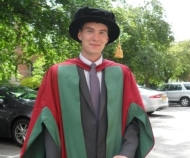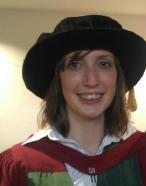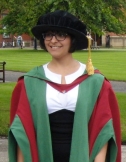Mark Ewbank
It was not too long ago that I sat for my doctoral viva at INLOGOV. Rather than being a harrowing experience, it actually turned out to be a very enjoyable one – with a chance to forensically dissect my research into local government ‘overview and scrutiny’ in minute detail and relate and explain the research project’s aims, outcomes and evaluations. Immediately afterwards I took a Research Fellowship at the University of Southampton looking at select committee evidence utilisation in the House of Commons, along the same theme of my doctoral work.
However, soon after the end of my research and work at Southampton I made the leap to local government. Whilst at INLOGOV and previous employment at the (excellent) Centre for Public Scrutiny I had had daily contact with councillors from all over the country, I had never truly experienced life on the frontline. Now, a few years into my post in local government, I can reflect, from an officer perspective, that the day-to-day life of a councillor is far more complex than anything I had ever envisaged within my research scope first laid down in 2007. However, whilst my experience hasn’t invalidated any of my research outcomes or conclusions, it has opened up a whole raft of possible further research questions that I remain keen to evaluate in the future.
For me, quite unexpectedly due to pre-conceptions, my time in academia has been well-utilised by local government, whether undertaking research myself, working with academics or commissioning. At a high-profile council I now lead a small team of officers in the ‘overview and scrutiny’ function, where having balanced, fair analysis and evaluation is critical. With the academic background in a long-term research project such as the doctoral thesis, ‘task-and-finish’ groups almost take on a similar feel – with total immersion and rigorous research plans and reports.
With an inbox that fills up each time I leave my desk, there are times when I miss the protective cloister of an office and a project that occupies myself alone, but the sheer number of experiences and daily challenges that come with being an officer in such a unique council outweigh the negatives at this point. At a fundamental level – I duly confess that I do enjoy working with Elected Members and have found that in whatever capacity I have worked with them, whether in a central (CfPS), academic (INLOGOV) or frontline (Council) capacity, facilitating the democratic wheels has always been my passion. At my own Council, such Member passion and enthusiasm, on both sides, for improving lives keeps and drives my enthusiasm for the role. Having such a direct and measurable impact, as Scrutiny practitioners tend to have, has ensured that I have yet to come to regret my leap.
Mark Ewbank is currently the service lead for Overview & Scrutiny in the City of Westminster. He graduated from his PhD studies at INLOGOV in 2011, with a thesis focused on party group organisation and behaviour within and outside legislatures, especially in relation to the roles of political actors as part of groups/select or scrutiny committees. Mark also taught classical political theory at an undergraduate and postgraduate level at the University of Birmingham.





